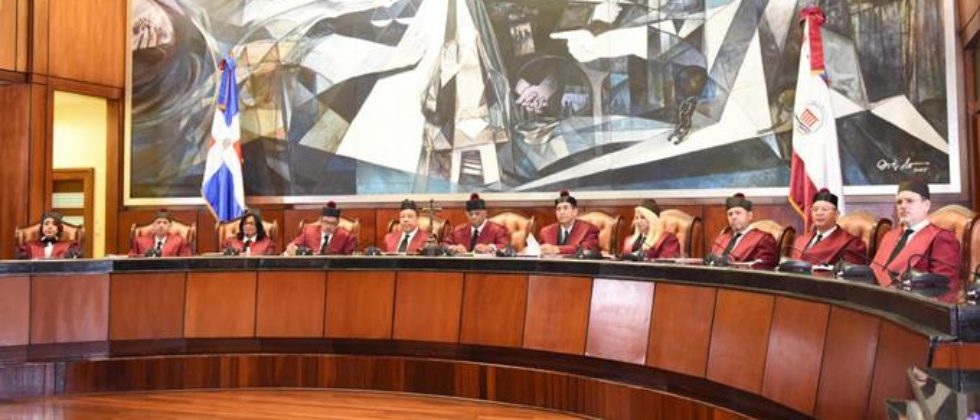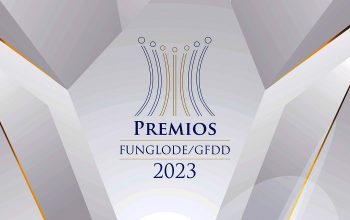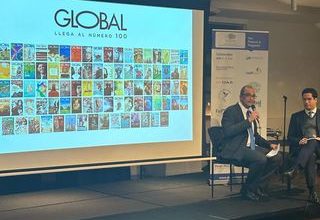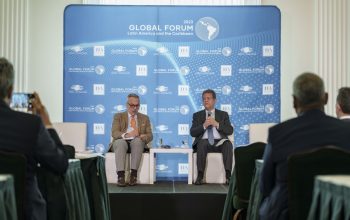news
“Law on Parties, Constitutional Court and Democracy”, an article by Dr. Leonel Fernández
September 12, 2019
Just over a year ago, on August 13, 2018, Law 33-18 on Parties, Groups and Political Movements was passed. In that short period of time, however, the law has been challenged ten times on the basis of unconstitutionality.
These appeals have been brought forth by citizens, civil society organizations, parties, groups and political movements. The Constitutional Court has made decisions about six of the ten appeals presented.
In the case of four of those appeals, the body in charge of guaranteeing the authority of the Constitution has decided in favor of the appellants. As a consequence, a total of 10 dispositions in Law 33-18 have been removed.
Four other appeals are pending which could determine other parts of the law to be conflicting with the Constitution.
These decisions demonstrate how prudent it was to create the Constitutional Court during the 2010 constitutional reform.
Since then, in terms of the Constitution, it should be observed that of all the powers of the State, the High Court is its greatest guardian. Thus, when one of the State bodies fails to comply with the provisions and principles of our Manga Carta, it depends on the Constitutional Court to amend that transgression.
The Court’s purpose is to guarantee that when a party or political group has a majority in one of the branches of power, it cannot make use of that majority to disregard the Constitution.
Throughout the history of the Dominican Republic, since the establishment of the Supreme Court of Justice as the commanding power in determining constitutionality, it is difficult to find a law that, within just one year of being passed, has faced so many direct appeals based on unconstitutionality and that has received so many sentences confirming that unconstitutionality.
Without a doubt this is unprecedented. This is why the situation requires some reflection about the hidden motivations that may have been at work during the law’s passing and discussion.
Unconstitutional Provisions
Just nine months after the passing of Law 33-18 on Parties, Groups and Political Movements, on May 21, 2019, the first declaration on unconstitutionality was released.
Through decree TC/0092/19, the Constitutional Court declared article 44, number 6 of the law unconstitutional. That article established the prohibition of spreading negative messages that obscures the image of candidates through social media.
According to the high Dominican court «[…]the provision not only violates the legal principle of judicial protection, the right to free expression and the principle of reasonableness, but also the right to information stated in article 49 of the Dominican constitution, because it impedes the spread of information through excessive and ambiguous types of laws.…®»
Two months later on July 22 of this year the high court, in its decree TC/00214/19, declared the unconstitutionality of paragraph 3 of article 45.
The statement reclaimed democracy and the right to association of political parties, through the reestablishment of statutes as the primary source of internal order for political organizations.
The next month on August 21, through the decree TC-0332/19, the court confirmed its previous decision.
Finally, on August 28 the Constitutional Court, through statement 39/19, published the sentence that declared eight provisions of Law 33-18 on Parties, Groups and Political Movements as unconstitutional.
In total there were 10 provisions in Law 33-18 on Parties, Groups and Political Movements declared null by the Constitutional Court.
Those provision refer to topics related to the protection of fundamental rights like the freedom of expression and spread of thought, the right of association and internal democracy of political parties.
Authoritarianism and Folly
The approved text in the law of parties about these topics is worrying. In first place, it established prohibitions with respect to the transmitting of messages published through radio and television.
Secondly, it put in place limits during the period of pre-election campaigns with respect to the participation of candidates and their spokespeople; the places where meetings are held; the production and use of propaganda materials; the sharing of messages and the organizing of times to send messages via telephone calls.
Thirdly, there was the confusion regarding the difference between negative campaigns and dirty campaigns; and the establishment of a censuring regime.
Fourth, the prohibition of parties, groups and political movements to establish allies in the first electoral process; fifth, the indication in each political organization of which is the correct body to determine the type of election registry; sixth, the legal obligation of a time to pursue and hold a pre-candidacy in representation of a political organization; and seventh, the determination of causes for the autonomically removal of members to party affiliation without the observance of due process.
In summary, it’s a bunch of nonsense. How can one consider that, in a democratic system during a pre-election campaign, one could not send out messages through media outlets, public events, nor send out propaganda or make phone calls?
Without us realizing it, the Law on Parties, Groups and Political Movements was on its way to creating an authoritarian regime. It was limiting free expression and the spread of thought, making the emergence of new political players more difficult, impeding criticism and obstructing the internal democracy of parties.
Law 33-18 only was able to favor those that were in a position of power. While the government could continuously distribute propaganda, the law limited and prohibited that of other political forces. There was inequality in the exercise of political participation that resulted in the risk and threat to the future of Dominican democracy.
But, besides the anti-democratic and unconstitutional character of the provisions pointed out by the Constitutional Court, there were other aspects that were incongruent, inconsistent and irritational that suggest folly.
How could one authorize the participation of pre-candidates and their spokespeople on radio and television programs, but at the same time prohibit the transmitting of messages through those very media outlets.
The truth is that there is nothing more absurd.





